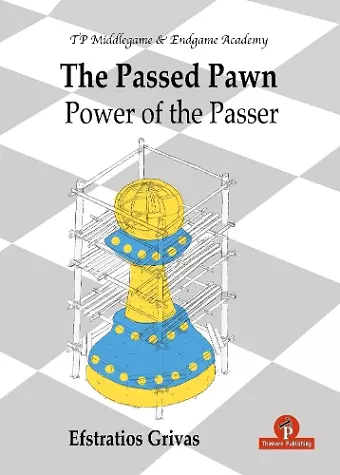The Passed Pawn
Power of the Passer
Format:Paperback
Publisher:Thinkers Publishing
Published:29th Jul '22
Should be back in stock very soon

The purpose of this series is to introduce the reader to advanced training concepts, using the same methods of presentation and instruction that were taught to great players by famous trainers that they have worked with. The series will commence with the The Passed Pawn and we will examine how to handle such pawns.
Most chess players focus more on the study of opening theory than other aspects of the game. The reasons are probably clear: opening theory is easier to learn and can provide immediate results, although this is based more on the opponent’s ignorance than our own abilities. Even for a chess trainer, it is easier to teach some variations from this or that opening or a set of simple tactical motifs than to engross himself in the exposition of middlegame and endgame theory. Yes, middlegame and endgame theory does exist. The great difficulty in approaching it lies in the fact that it does not follow absolute and clear-cut paths, but rather involves deep research in the ideas and logic by which specific types of positions are treated.
Moreover, unlike opening theory, the theory of the middlegame and the endgame does not change rapidly based on modern developments; it remains almost intact through the years. In view of the above, any chess player who wishes to follow a chess career or simply become a better player must refrain from the commonplace and assume a different approach. He must develop a good understanding of middlegame and endgame theory, so as to be able in his games to proceed in a proper way after his chosen opening has reached its conclusion. The chess player can differentiate himself only in the opening; there, each one of us brings forth his own beliefs and convictions, and in general his own experiences and references. Objectively, no opening loses — but also no opening wins. The opening is just the beginning of the journey and serves to offer us a comfortable start. But to reach the end of this...
ISBN: 9789464201505
Dimensions: unknown
Weight: unknown
236 pages
New edition